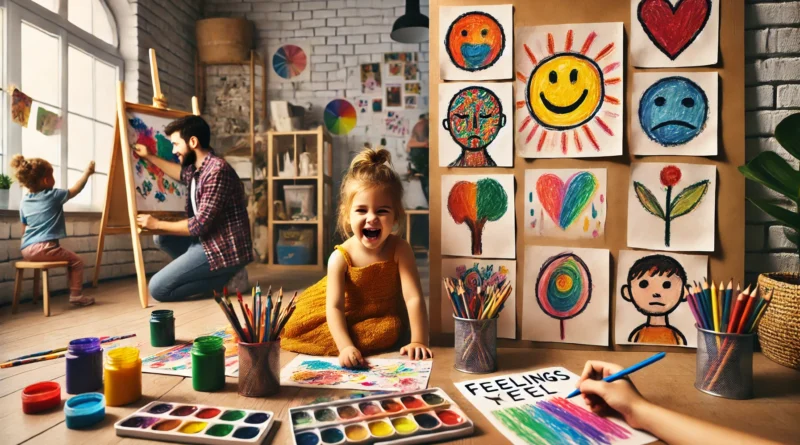How to Teach Young Children About Art and Self-Expression
Art is one of the most natural ways for young children to express themselves. Whether through scribbles, finger painting, or building with clay, art helps kids explore emotions, develop motor skills, and build confidence. The best part? There’s no right or wrong way to create—it’s all about the process!
Why Art and Expression Matter
- Supports emotional development
- Builds fine motor and cognitive skills
- Fosters confidence and creativity
- Encourages communication through visuals
- Creates joy through self-discovery
Option 1: Offer Open-Ended Art Activities
Activity Idea:
Set up a table with crayons, paints, paper scraps, glue, and scissors.
Let your child create whatever they want—no instructions or models.
Ask: “Can you tell me about your artwork?” instead of “What is it?”
What Kids Learn:
- Freedom in creative expression
- Confidence without judgment
- Language skills through storytelling
Tool Suggestion:
Make an “Art Tray” that’s always available with safe, child-friendly materials.
Option 2: Use Art to Explore Feelings
Activity Idea:
Ask your child to draw or paint how they’re feeling today.
Use prompts like: “What does happy look like?” or “What color is angry?”
Display emotional artwork on a wall or in a feelings journal.
What Kids Learn:
- Emotional awareness and expression
- That feelings can be shared in different ways
- Art as a calming and reflective tool
Book Suggestion:
The Color Monster by Anna Llenas — a great introduction to feelings and colors through art.
Extra Ideas to Support Art and Expression
- Display their artwork at home to show pride and validation
- Introduce different materials like clay, watercolors, or recycled objects
- Listen and reflect on what they create: “That red swirl feels very strong—were you thinking of something powerful?”
- Create a rotating art gallery on the fridge or a bedroom wall
- Celebrate effort, not just appearance: “You worked so hard on this!”
Final Thoughts
Teaching children about art and self-expression gives them a lifelong tool for joy, reflection, and communication. Whether they’re painting emotions, building with blocks, or gluing feathers to paper, every creative act helps them learn who they are—and that their voice matters.
